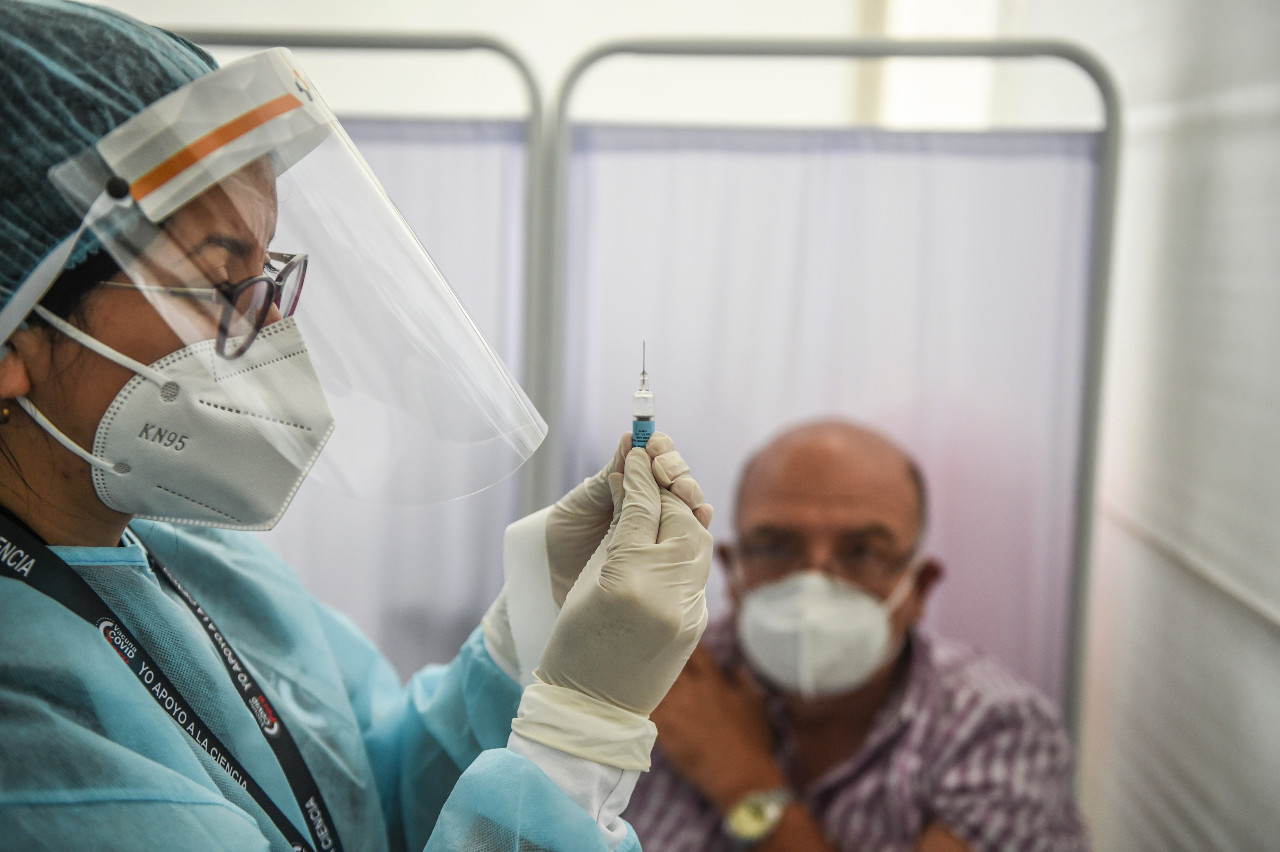Resolution 2021
It may take until March 2022 to complete the inoculation, according to the national road map.

M
any have resolved to improve the way they live in the new year, ranging from exercising more and eating less junk food, and remained upbeat about the world’s struggle to win the COVID-19 war.
World leaders, including President Joko “Jokowi” Widodo, have expressed their guarded optimism that 2021 will be better than the just concluded 2020.
In his speech marking the changing of the year, Jokowi said the nation should be grateful to have passed the tough test and settled its problems one by one. His New Year’s resolution, although he did not say it, is to lead the nation to herd immunity against COVID-19 through mass vaccination, which he said would kick off in the coming two weeks.
That is a tall order for sure, given that the country is still scrambling to secure enough vaccine supplies to reach herd immunity, which is estimated to be 400 million doses. Indonesia has so far procured 3 million ready-for-use doses of vaccine from China’s Sinovac Biotech, the efficacy of which has remained inconclusive, pending the results of the CoronaVac final phase trials in Bandung.
In Brazil, where the trials also took place, the vaccine showed an efficacy rate of between 50 and 90 percent, while in Turkey the rate stood at 91.25 percent, Reuters reported.
It may take until March 2022 to complete the inoculation, according to the national road map. It begins with immunization of 1.3 medical workers in mid-January, the next step is to vaccinate 17.4 million civil servants, including teachers, and 21.5 million elderly people in April. The next recipients are nearly 64 million vulnerable people and 77.4 million others.
The mass vaccination is the reason for Jokowi’s optimism for economic recovery this year. After the first recession since the late 1990s, Bank Indonesia has forecast the country’s economy to grow 4.8 to 5.8 percent this year, supported by a rise in export performance, private and government consumption, as well as investment from both government capital expenditures and foreign investment as a positive response to the Job Creation Law.
Vaccines seem to be the lifeline countries across the world need the most to escape the COVID-19 shackles. Israel, the United States, the United Kingdom, Germany, Canada, Bahrain, Oman, Portugal, Poland and Croatia are among countries that have started mass vaccination programs.
But vaccination will not help much, particularly for Indonesia, unless the public fully adheres to the health protocols to adapt to the “new normal”. As of Friday, COVID-19 has infected more than 750,000 people, killing over 22,300 of them.
The worst has yet to come, apparently, with Health Minister Budi Gunadi Sadikin warning of a steep rise in the number of cases in the coming two weeks. This is nothing new, as case spikes were also seen after holiday seasons in 2020.
Perhaps, complying with the health protocols – wearing a mask, washing hands with soap and physical distancing – should be the resolution of each Indonesian citizen if the nation is to recover from both the health and economic crises.
But please beware, a study has found that most people fail to achieve their New Year’s resolution.









